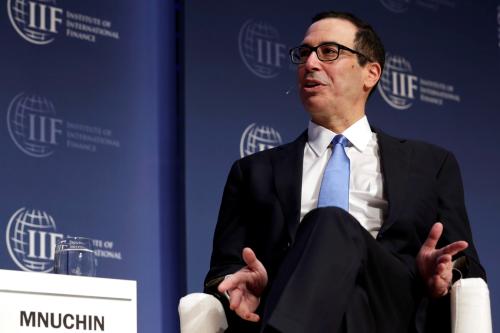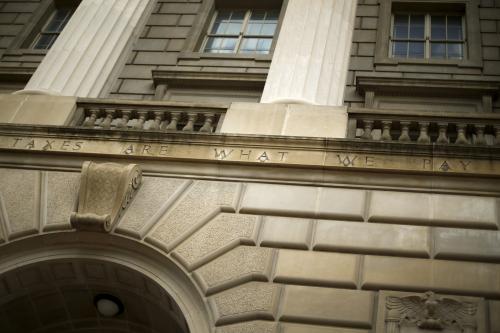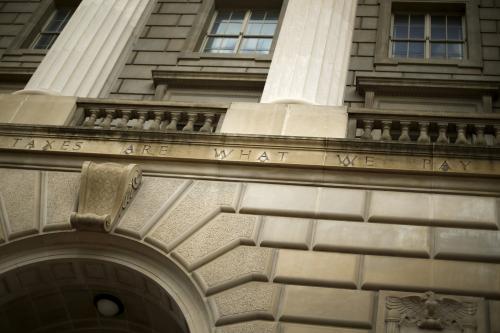In an important new book, Brookings’ Vanessa Williamson shows that most Americans regard paying taxes as a civic duty and are offended when they regard others as not doing their part. As lawmakers and the Trump administration begin their push for tax reform, they should pay attention to fresh survey evidence that supports Williamson’s thesis.
A Gallup survey released on April 13 finds that 61 percent of Americans see their own federal income tax obligation as fair, including 69 percent of Democrats, 60 percent of Independents, and 56 percent of Republicans. According to an April 14 report from the Pew Research Center, only 27 percent of Americans are bothered “a lot” by the amount they themselves pay in federal income taxes. Only 35 percent of Republicans, often regarded as allergic to taxes, say they are more than minimally bothered by the taxes they pay. Fifty-four percent of Americans say they pay “about the right amount” in taxes; 49 percent of Republicans agree.
The problem with the current tax code lies elsewhere. The Pew survey found that 62 percent of Americans surveyed are deeply troubled that “some corporations” don’t pay their share. Almost as many Americans—60 percent—report being disturbed that some wealthy people don’t either. By contrast, only 1 in 5 Americans say they are troubled by the failure of poor people to chip in.
As President Donald Trump ponders options for his tax reform proposal, he should consider the views of the voters who put him over the top last November. Only 25 percent of low-income Republicans complain about the amount they themselves pay in taxes; only 26 percent think poor people are shirking their responsibility to help fund the federal government. But 51 percent of these Republicans resent what they see as the failure of some corporations to pay their fair share of the tax burden, and almost as many—45 percent—resent wealthy individuals who don’t do so.
Complicating the president’s task are the very different views of upper-income Republicans, who are far more likely to criticize the complexity of the code and the amount of taxes they pay than to complain about the conduct of corporations and wealthy individuals. Economic class makes a big difference for Republicans, but very little for Democrats: Upper-income Democrats are just as likely as middle- and lower-income Democrats to believe that some corporations and wealthy individuals are shirking their responsibility to help fund the government.
Ever since the advent of supply-side economics, Republicans have emphasized cutting tax rates for corporations and upper-income individuals. Recent research suggests that in 2017, this approach would evoke a negative reaction from the people overall—and from many of their core supporters. The White House would be well advised to focus on broadening the base of the tax code so that lower rates will not reduce the overall tax burden on corporations and wealthy individuals, who are already regarded as not paying their fair share. Treasury Secretary Steven Mnuchin endorsed this approach some time ago, and the president would be wise to listen to him.







Commentary
Polling Spotlight: America’s shifting attitudes on taxes
April 14, 2017